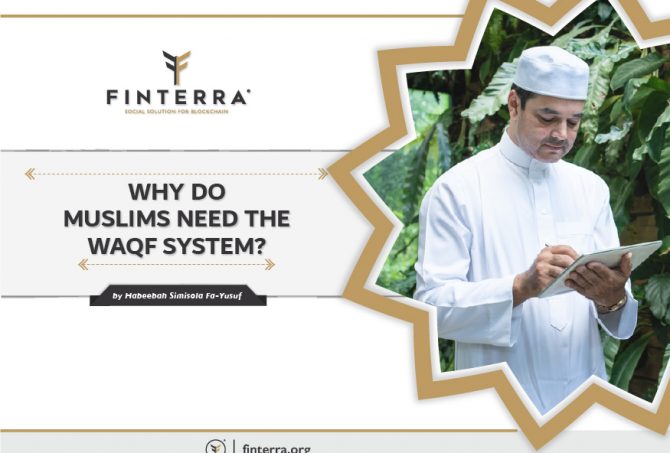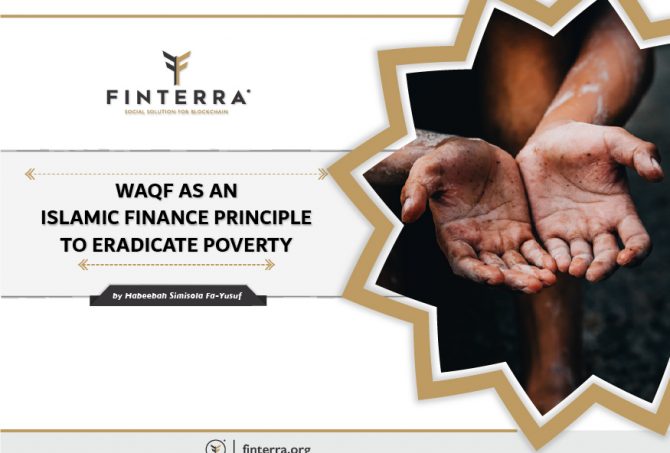Waqf in Relation to UN SDGs
The United Nations (UN)Sustainable Development Goals (SDGs) consist of 17 interconnected goals which, according to the UN, were set up to “meet the urgent environmental, political and economic challenges facing our world.” This article highlights the similarities between the UN SDGs and the goals of waqf. It also explains how waqf can fulfil some of the SDGs.
Waqf is indeed related to the first SDG which is ‘No Poverty’. As at 2019, about 600 million people in the world live in extreme poverty (Brookings Institute, 2020). Majority of these people live in Muslim countries. With waqf, voluntary donations by Muslims which are perpetual can alleviate poverty when properly implemented. The world and indeed Muslims need to take action to end poverty because of the social ills that come with poverty.
Another SDG which is closely related to waqf is the second: ‘Zero Hunger’. This goal is closely related to the first goal. Waqf could help achieve this goal by providing funds for poor farmers in the agricultural sector to enhance food security. According to the UN, 821 million people in the world are undernourished as at 2017. Therefore, this goal is pertinent. An overhaul of the global food and agricultural system is urgently needed and waqf can help.
The third SDG which waqf can help fulfil is ‘Quality Education’. Waqf is not just restricted to providing endowments for religious education or mosques. Realizing this, Muslims can make charitable endowments for conventional education also thereby improving the quality of human capital. A more educated workforce will spend more and this will have a multiplier effect on the wealth of the society.
Finally, waqfs can help achieve the tenth SDG: ‘Reduced Inequalities’. With waqf, there is a redistribution of wealth and income from the ‘haves’ to the ‘haves-not’. This process also reduces the burden of redistributing wealth from the Government so that more resources are available for other societal needs.
We end this article by making a call for action by Muslims to engage in Waqf. More convenient ways of meeting the goals highlighted above have emerged. One of these is the emergence of online methods of making endowments. An example is the charity on blockchain platform known as Ensany. In collaboration with Finterra, this charity on blockchain offers traceability, reliability, transparency, enhanced security as well as immutability, compared to other online charity platforms.
Reference
Brookings Institute. (2020). Future Development:
Rethinking Global Poverty Reduction in 2019. Retrieved February 12, 2020, from Brookings Institute Web site: https://www.brookings.edu/blog/future-development/2018/12/13/rethinking-global-poverty-reduction-in-2019/
Waqf is indeed related to the first SDG which is ‘No Poverty’. As at 2019, about 600 million people in the world live in extreme poverty (Brookings Institute, 2020). Majority of these people live in Muslim countries. With waqf, voluntary donations by Muslims which are perpetual can alleviate poverty when properly implemented. The world and indeed Muslims need to take action to end poverty because of the social ills that come with poverty.
Another SDG which is closely related to waqf is the second: ‘Zero Hunger’. This goal is closely related to the first goal. Waqf could help achieve this goal by providing funds for poor farmers in the agricultural sector to enhance food security. According to the UN, 821 million people in the world are undernourished as at 2017. Therefore, this goal is pertinent. An overhaul of the global food and agricultural system is urgently needed and waqf can help.
The third SDG which waqf can help fulfil is ‘Quality Education’. Waqf is not just restricted to providing endowments for religious education or mosques. Realizing this, Muslims can make charitable endowments for conventional education also thereby improving the quality of human capital. A more educated workforce will spend more and this will have a multiplier effect on the wealth of the society.
Finally, waqfs can help achieve the tenth SDG: ‘Reduced Inequalities’. With waqf, there is a redistribution of wealth and income from the ‘haves’ to the ‘haves-not’. This process also reduces the burden of redistributing wealth from the Government so that more resources are available for other societal needs.
We end this article by making a call for action by Muslims to engage in Waqf. More convenient ways of meeting the goals highlighted above have emerged. One of these is the emergence of online methods of making endowments. An example is the charity on blockchain platform known as Ensany. In collaboration with Finterra, this charity on blockchain offers traceability, reliability, transparency, enhanced security as well as immutability, compared to other online charity platforms.
Reference
Brookings Institute. (2020). Future Development:
Rethinking Global Poverty Reduction in 2019. Retrieved February 12, 2020, from Brookings Institute Web site: https://www.brookings.edu/blog/future-development/2018/12/13/rethinking-global-poverty-reduction-in-2019/




